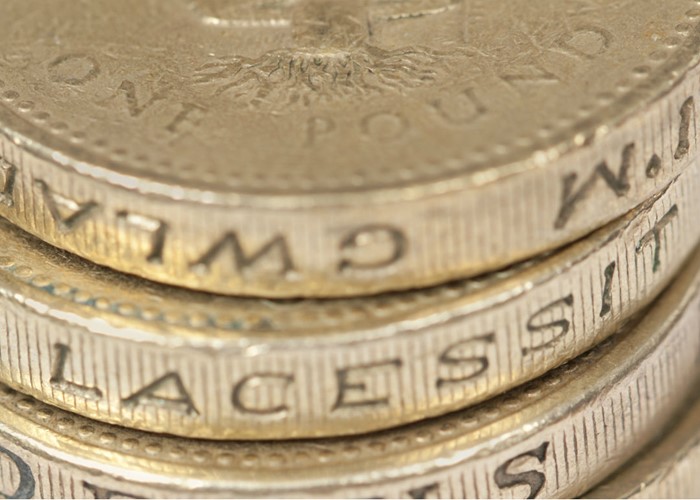6 steps to saving big

Want to dramatically increase your savings but don't know how? Check out these six easy steps.
Many of us are feeling the pinch right now, and finding it hard to save.
But it's amazing how easy it can be to squeeze some extra cash out of your budget - if you know how.
As a famous philosopher once said, the longest journey begins with but a single step. So here's how to get motivated, and start achieving that savings goal.
Budget
First, work out your budget. Take a look at your last few bank statements and enter all of your income (salary, benefits etc.) in one column, and all of your expenses (mortgage or rent, bills, insurance premiums, childcare fees, travel costs, food etc.) in another.
By subtracting your expenses from your income you'll see how much money you have left over each month to save.
Cut your expenses
Now you may be looking at a pretty paltry sum, in which case there are many ways to boost it. But be warned - you'll have to really want to economise to make decent savings.
First, pare down your bills. Cancelling subscriptions to Sky, the gym or any other luxuries can save hundreds per month and could be more cheaply replaced with Freeview boxes and a daily run around the local park. Likewise, finding cheaper electricity, gas, telephone and broadband deals can boost those coffers greatly.
In today's video, I'm going to highlight five things you should consider when choosing a savings account.
Could you manage with a cheaper mobile phone package, or Pay As You Go phone? And why not slash your car insurance premiums?
Next you need to reduce those living expenses.
Work out where your money goes (your statement and a spending diary can help). Cutting back on a £20 takeaway each week will save £80+ per month - or over £1k per year. Write a menu for the week and only buy what you need from the supermarket. (You can find frugal recipes here.) And of course, bringing lunch to work will save a fortune compared to spending £5+ each day.
Be realistic
But while you need to cut back, don't go crazy. The main reason budgets fail is because many of us get over-excited when compiling them and leave ourselves with ridiculously meagre sums to survive on. Allocate a reasonable budget for food and necessities and allow yourself a few small luxuries each month - you'll be far more likely to be able to stick to this long term.
You should now have an idea of how much you need to live on each month - and how much you'll have left over to save.
Let's take an imaginary couple: Simon and Sarah. They're trying to save up £15k for a house deposit. They reckon they could save £700 per month. It'll therefore take them nearly 2 years to save up their target sum (try using this savings calculator to work out how long it will take you to reach your goal).
Start saving
Now it's time to find a home for those savings and watch them grow.
As Simon and Sarah are both taxpayers they'd keep more of their interest by using their Cash ISA allowances.
Principality Building Society is currently paying 2.8% on its Instant Access e-ISA Issue 2 (they could each save up to £5,100 in 2010/11). Assuming the rate remains the same, if they saved a total of £700pm (say, £350pm into each ISA) over two years they could have saved a total of £17,292, including nearly £492 interest.
Alternatively, Simon and Sarah could earn a slightly better rate by putting some of their monthly savings into a regular saver account (assuming they aren't aren't higher or additional rate taxpayers). For example, they could each pay the £250 maximum per month into Norwich & Peterborough BS Regular Saver accounts and earn 4% AER fixed (saving the extra £200 in an instant access account or cash ISA).
Rachel Robson highlights five easy ways to master the art of budgeting.
How to save more
But could you save more?
Got a house full of books, CDs, DVDs, computer games, toys, baby paraphernalia, or gym equipment you never use? Then sell it and make a few (hundred!) quid?
Car sharing can almost halve your fuel bill (not to mention reduce wear and tear on your vehicle). Find three other like-minded souls and you could free up hundreds each month (companies like carshare can help if you don't know anyone locally). And check petrolprices.com for the cheapest fuel in your area.
Or go one better and cycle to the office - you'll get fitter to boot.
A season ticket could save you hundreds on train travel each year, and many employers offer loans to help you spread the cost over a year.
If you shop online, use MySupermarket - it allows you to compare how much your grocery basket would cost through Tesco, Asda, Sainsbury's and Ocado - so you can choose the cheapest one.
Spend wisely
And of course, the time will come that you'll need to spend some money. But could you borrow the required item from a friend/relative? Is anyone getting rid of one on Freecycle?
When you have to go out, try and use 2 for 1 vouchers where available. And for cheap entertainment why not host a Pot Luck/Bring and Share supper with your friends - everyone simply turns up with a dish and some wine and you all dig in.
If you're careful, but realistic you should be able to save a surprising amount of money.
Compare savings accounts at lovemoney.com
More: Six tops savings accounts out now | Win more cash from Premium Bonds
Comments
Be the first to comment
Do you want to comment on this article? You need to be signed in for this feature